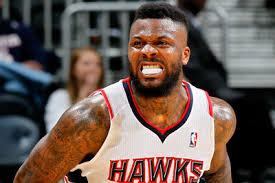Discipline and motivation are the ultimate measure of a coach.
Did Mark Helfrich get the most out of the talent he had? At the end of his first year, does he have the team going in the right direction? Is he improving in his command of the organization and ability to get everyone to buy into the message? Is the message clear, concise and empowering?
The Alamo Bowl, besides being a matchup of talent versus talent, is a referendum on all those things.
Despite his reputation as a “nice guy/player’s coach,” Helfrich has proven to be a hard-liner in terms of discipline. His decisions have been swift and decisive, and punishments pretty harsh by the standards of other programs. Within a few days of taking over he dismissed reserve running back James Scales for a violation of team rules.
Since then, Colt Lyerla was suspended for the Colorado game and then left the team. Eric Dargan and Troy Hill sat out the Civil War for unspecified disciplinary reasons. Pharaoh Brown was banned from the bowl game for his actions during the snowball fight, and Byron Marshall was subject to team discipline, not spelled out for the press. Now Hill has drawn a second suspension for an arrest for domestic assault, pending the outcome of his court case.
All of these actions exceeded anything you’d see at Ohio State or Florida State. Helfrich has been quick to act, and stern. Most importantly, he’s been consistent.
In his first year the Ducks had two losses and a November slump. There’s been talk of some looseness in practice, failures of discipline in preparation, and some writers, notably Scott Reed of Duck Sports Authority (a site that I write a column for three times a week) point to penalties, turnovers, slow starts and failures in execution, and charge that the team wasn’t being prepared properly, that the team had lost its “Win the Day” focus despite offering lip service to the mantras and slogans of the Chip Kelly era. The team doesn’t have the same edge, critics said. Dust devils that swirled out of the media, statements about not wanting to play in the Rose Bowl and scoring 40 against Stanford were cited as further evidence of a lapse in discipline and leadership.
Given the effort Josh Huff and De’Anthony Thomas gave in those November games, those charges were overblown and unfair. But the concern was genuine in one respect: at no time during the Kelly years did the team seem so unprepared and flat as they did against Arizona, losing 42-16 as a 22-point favorite.
Stuff like that didn’t happen in the CK regime. The Ducks lost games, but never as a big favorite to a mediocre team. The Wildcats were 7-5 this year. Credit Rich Rodriguez with a great plan and his team for an inspired effort, but Oregon didn’t look ready to play in Tucson. The execution and focus simply weren’t there, and were subpar all through November.
A firm and decisive hand in disciplinary matters is one way to establish control in an organization. Equally important is cohesiveness within the staff and a clear sense of direction and chain of command. It’s natural there would be some growing pains in the first year. It’s a big job.
Most of the ways a football team can make news in the off season are bad. Suspensions. Grades. Transfers. Legal trouble. Helf got a big endorsement when Marcus Mariota and Hroniss Grasu elected to return for next season. They wouldn’t have made that decision if they had doubts about the direction of the program or its leadership.
Some disciplinary hiccups are inevitable. These are young men with raging testosterone and still-developing brains–the centers for reason and judgment aren’t fully formed until the mid-twenties. Until then, structure and oversight have to compensate. Some athletes are blessed to grow up and thrive in strong supportive families: Mariota, Grasu, Marshall, Kenjon Barner, and Thomas Tyner are notable examples. Other times, elite athletic talent blooms in a wasteland of violence, uncertainty and neglect, searing poverty and war-torn streets. Those kids have to find their way and often come to college with a lot to unlearn and overcome. Josh Huff’s personal story is a triumph in this way, growing up around drug addiction, his own mother attacking him with a two-by-four in a drug-addled rage. Marqise Lee of USC is one of the most remarkable talents in the game, but the story of his upbringing is wrenching and incredibly sad. Both these players used sports as an escape and a means to rise out of brutal circumstances. They were fortunate enough to choose mentors and friends that led them in the right direction. Not every athlete succeeds.
LaMichael James got into some trouble at Oregon, but he perservered and grew through it. His personal story was another of the wrenching variety. His father was shot and killed before he was born. His mother gave him up at birth. Raised by his grandmother, she died of cancer during the spring of his junior year, and he lived alone in her house during his last year of high school. At one point during his redshirt season he got so homesick he packed his bags for Texas, and coaches Gary Campbell and Mike Bellotti had to talk him into staying at the curb. Campbell became a father figure to him, as he has to many.
The point is, discipline, motivation and teaching are never simple. It’s a complex puzzle, shaping the lives of young men from different backgrounds, understanding their influences, hopes and fears. Ultimately, the results are about way more than football. LaMichael James got his degree. So did Barner, and so will Mariota and Grasu. Troy Hill’s life is at the crossroads, and so is the Oregon football program. The decisions and commitments they make in the next few weeks will make all the difference.
Add The Sports Daily to your Google News Feed!
